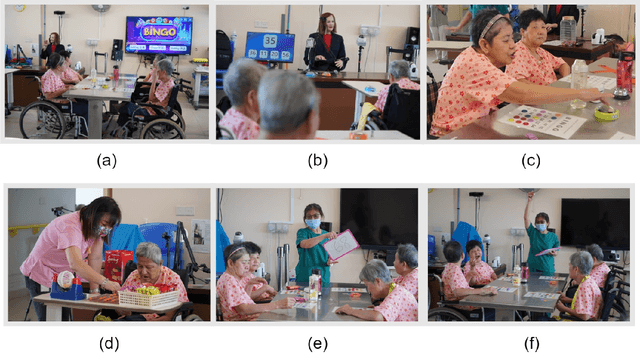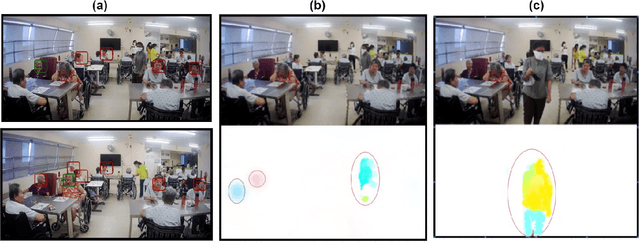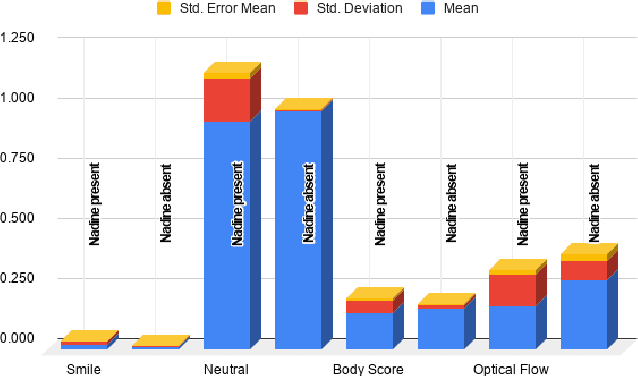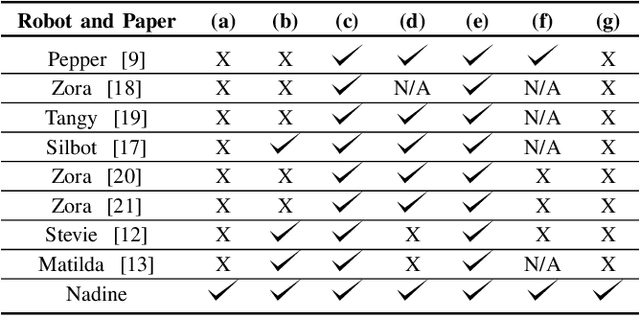Does elderly enjoy playing Bingo with a robot? A case study with the humanoid robot Nadine
Paper and Code
May 05, 2021



There are considerable advancements in medical health care in recent years, resulting in rising older population. As the workforce for such a population is not keeping pace, there is an urgent need to address this problem. Having robots to stimulating recreational activities for older adults can reduce the workload for caretakers and give them time to address the emotional needs of the elderly. In this paper, we investigate the effects of the humanoid social robot Nadine as an activity host for the elderly. This study aims to analyse if the elderly feels comfortable and enjoy playing game/activity with the humanoid robot Nadine. We propose to evaluate this by placing Nadine humanoid social robot in a nursing home as a caretaker where she hosts bingo game. We record sessions with and without Nadine to understand the difference and acceptance of these two scenarios. We use computer vision methods to analyse the activities of the elderly to detect emotions and their involvement in the game. We envision that such humanoid robots will make recreational activities more readily available for the elderly. Our results present positive enforcement during recreational activity, Bingo, in the presence of Nadine.
 Add to Chrome
Add to Chrome Add to Firefox
Add to Firefox Add to Edge
Add to Edge